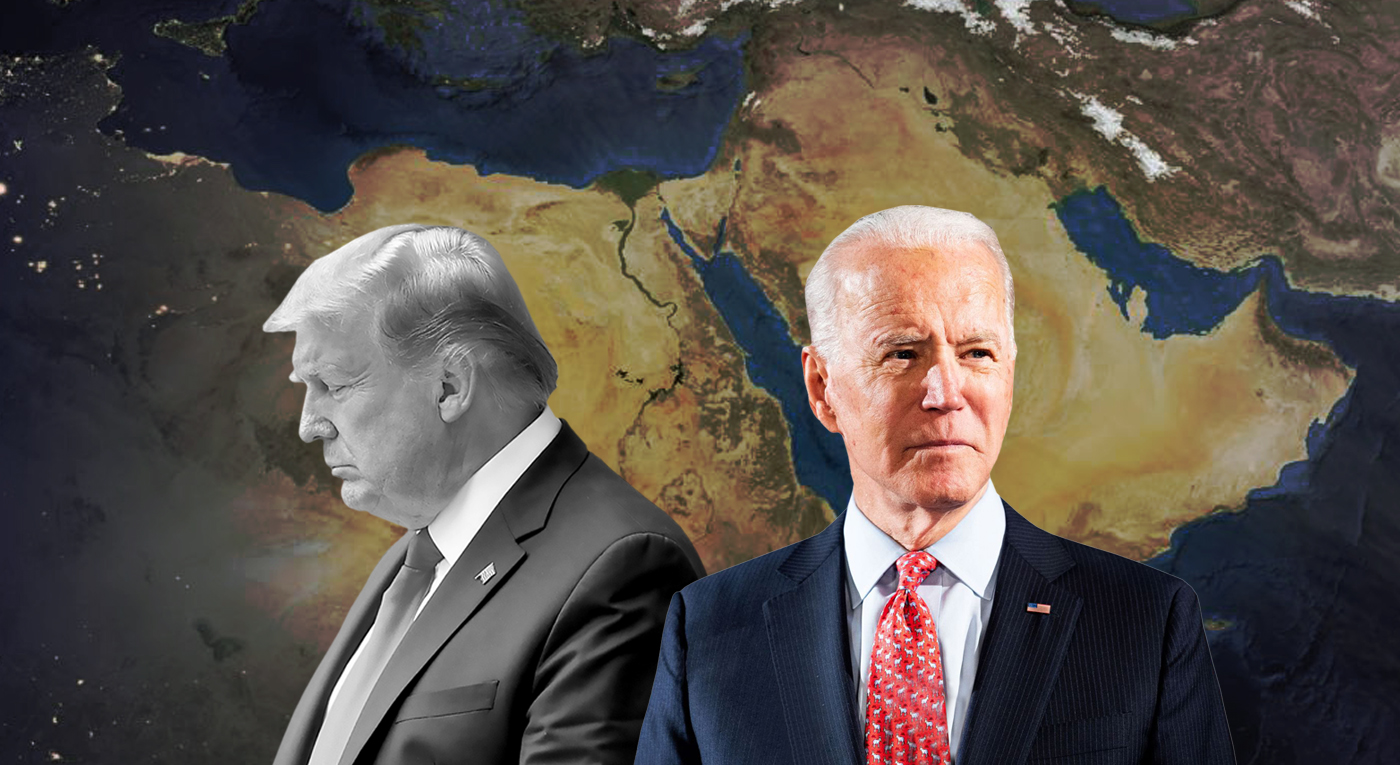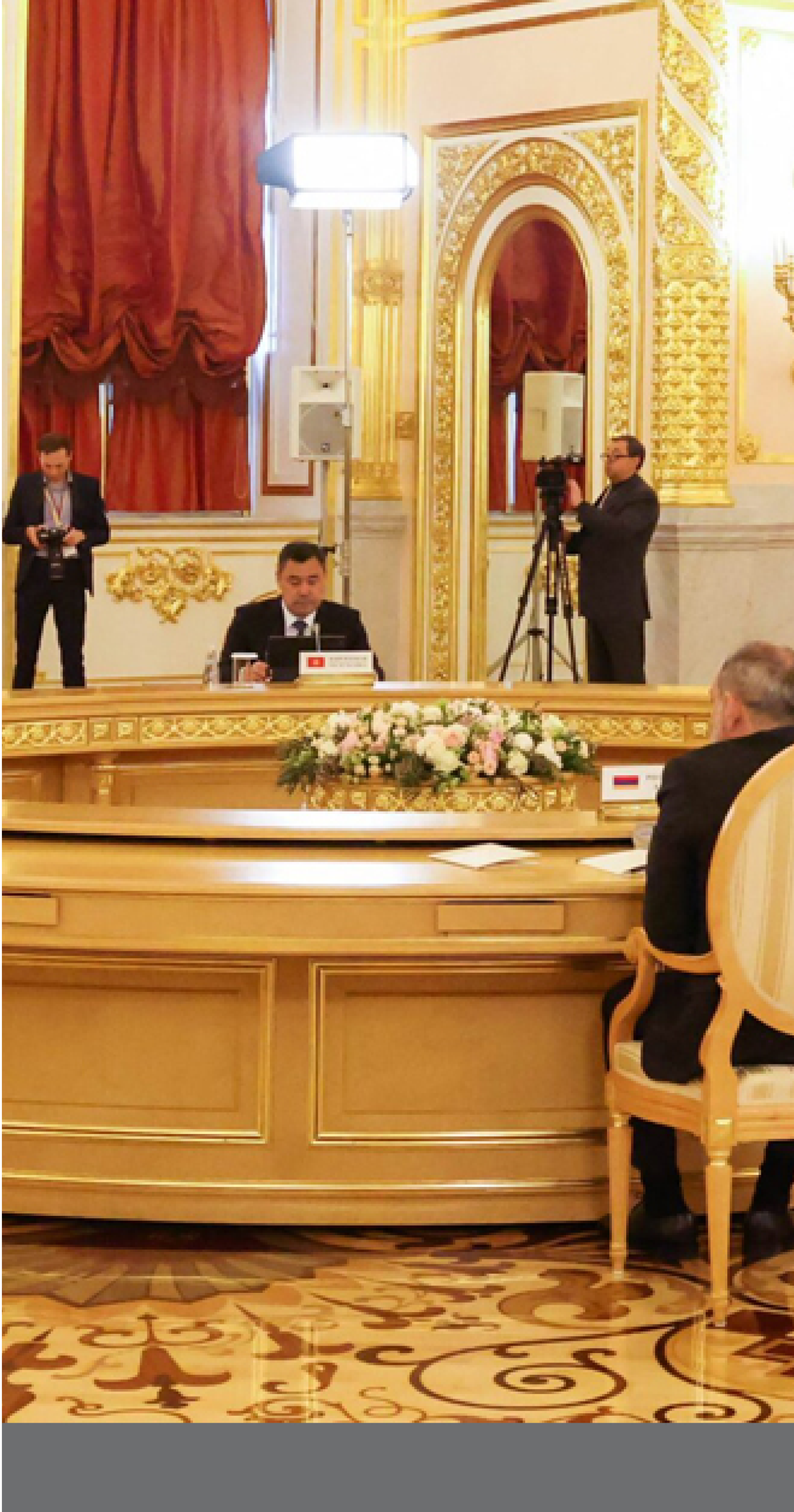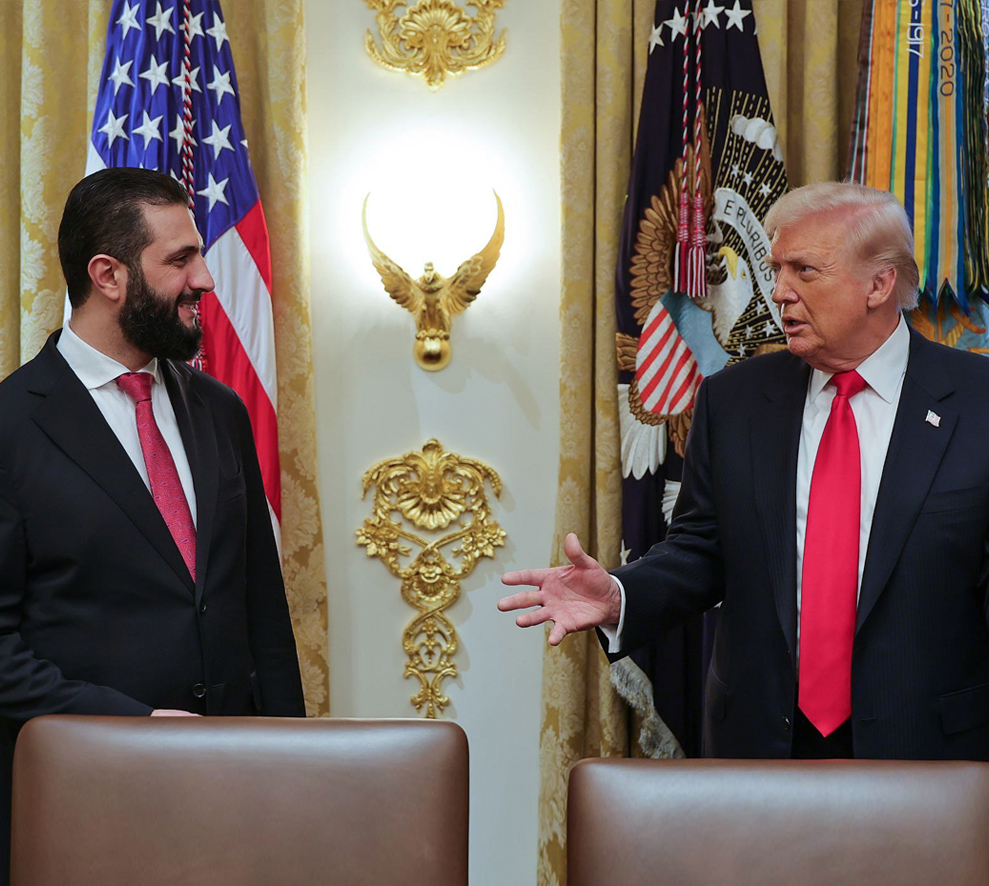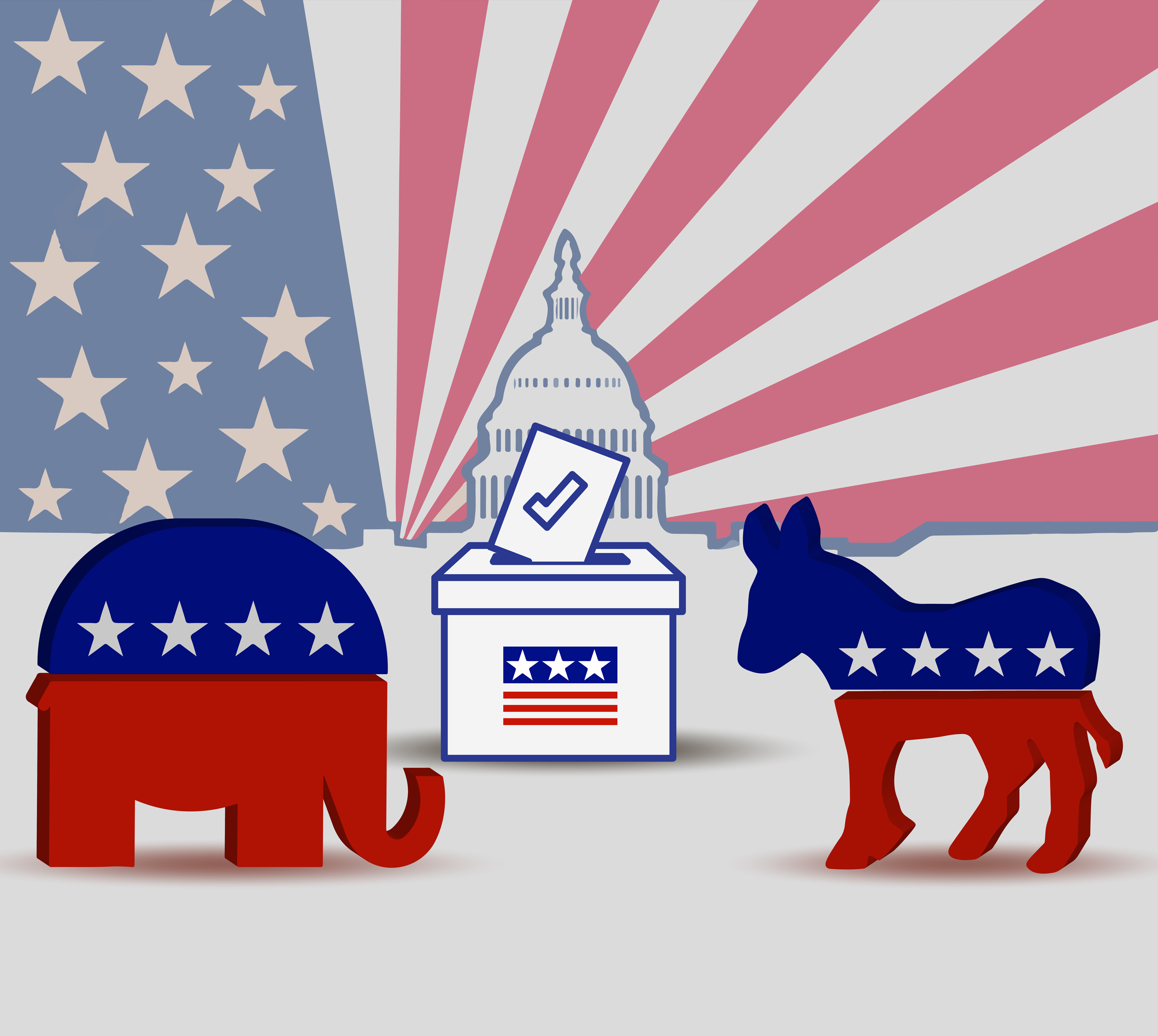“Do you know what a Bull, and a Bear and Lame Duck are?”
Horace Walpole, a British writer and member of the House of Commons wrote in 1761 in one of his letters to Sir Horace Mann, speaking of the London Stock Exchange. While the first two terms are still used to this day to refer to market conditions, lame duck (which had been used to refer to a trader who had defaulted on their obligations or gone bankrupt) has moved into the world of US politics, describing in particular the President of the United States in the period between the announcement of the election results and the new president's inauguration on January 20.
Today, as the winds of the US election went against the wish of Trump's ships, with the results showing that Joe Biden will be the country's 46th US president, comparing Trump to a "lame duck" has become very popular in various Arab and Western media. Given that US presidents often retain their most controversial decisions until last weeks of their terms, there are widespread expectations of big surprises, especially since many of his decisions and actions during his four years term were problematic and highly unusual.
However, I disagree with this view and think that Trump's latest "surprise" is not to unveil any "surprise," at least regarding the Middle East, where he has achieved a lot, and laid the foundations for more achievements, which Biden might be able to reap if he made good use of. Yet, it is now better to think beyond this short period: to approach all the files in the Middle East and the Arab world in the wake of Trump's departure, and how the new president-elect would deal with them.
Some analysts and politicians hold Trump responsible for the disastrous situation that more than one country in the Middle East is going through, without mentioning decades of tension and conflict in the region as a result of internal differences and outside interference, forgetting a legacy of mistakes, short-sighted policies and confusion by US leaders (Republican and Democratic alike) as well as the negative effects that continue to be visible in different countries.
Trump administration has suffered from the same "strategic inconsistency", and the absence of a long-term strategy has been their primary problem in the region. If Biden really wants to be different and re-establish "the credibility of the United States, indicating to the world that America's word and international commitments are meaningful," as the Council on Foreign Relations put it, he must start here. Achieving success, by any definition, in the Middle East might be quite difficult, but it would be impossible if the new president merely tried to manage conflicts that are strife in the region, rather than resolve them.
One might say, enough exaggerations about Washington's "extraordinary" power; yet, we have sufficient concrete evidence to prove that nothing is happening in our region without Washington's blessing. If we leave the past full of evidence of this kind, let us reflect on the situation of several Arab countries to see how effective the US role is.
In Lebanon, US pressure resulted in President Saad Hariri being tasked with forming the government, a decision that soon began to face great difficulties as soon as Trump lost the presidential elections. The supposed partners have given up the PM-designate and the candidate lists have gone with the wind, forcing him to wait until the new US president take office. This waiting period carries the risk of Hariri's ouster and the appointment of an alternative to form the government. Another development in Lebanon highlights Washington's role maneuvering and resolving issues, as it is more likely that the wheel of negotiations to demarcate the maritime borders between Lebanon and Israel will remain stalled in light of the current vacuum in Washington and will not return to work unless Washington throws its weight in order for the two sides to resume their talks to get out of the current impasse.
In Libya, mired in chaos and divisions caused by the bloody conflicts provoked by regional powers seeking to dominate the country and exploit its capabilities, the two parts run by two contradictory governments will not be reunited unless the US pressures the Libyan parties to accept a solution that will restore the country's unity and force Turkey and the Muslim Brotherhood in general to stop manipulating the Libyans.
Yemen, in turn, demonstrates Washington's significant role in resolving outstanding issues, as Iran continues to blow up the country and brutalize the lives of its safe citizens through its Houthi followers. There will be no light at the end of the long tunnel unless the US presses Iran with all its might to leave Yemen in peace.
Whether it's the Middle East or else, it's the US president's duty to his people to develop a strategy that will ensure their security and well-being. There are files that the new president will have to deal with, first and foremost the Iranian nuclear file, which is one of the pillars of such a strategy. It is at the forefront of current issues whose entanglements hardly stop.
In this vein, Biden said he would restore the Obama-era nuclear deal officially known as the Joint Comprehensive Plan of Action (JCPOA) with Iran, but Trump withdrew from it in May 2018 and imposed on Tehran some of the toughest economic sanctions it has ever faced. “If Iran returns to strict compliance with the nuclear deal, the United States would rejoin the agreement as a starting point for working with allies to strengthen and extend the nuclear deal's provisions,” the president-elect said.
US withdrawal from the deal did not lead to Iran’s nuclear bomb production, and Qassem Soleimani's death did not lead to war in the region. Despite Iran's continued threats, the "response" did not go beyond a missile attack on an abandoned section of a US base in Iraq, and Washington was able to maintain multilateral economic sanctions, which European companies have fully complied with.
It is not an exaggeration to say that Tehran is, to a large extent, ready to negotiate on Washington's terms, even if its leaders claim otherwise. Its regime, which cannot stabilize its currency or protect its people from the scourge of the Covid-19 pandemic, needs to lift sanctions from its shoulders, even partially, and realizes that the road to the global economy and financial system inevitably passes through Washington. Any US policy that dispels what the maximum pressure approach has achieved on Iran is reckless, empowering its regime, and therefore unfair to the Arabs it threatens as well as the Iranian people themselves.
Biden's second file in our region is the Arab-Israeli peace process, which has seen rapid developments under Trump, and opinions have been divided between favorable and conservative. But whatever the position on these qualitative leaps, they have certainly taken place at an unprecedented pace for decades, as it has been nearly a quarter of a century since the last Arab-Israeli peace agreement. Indeed, the situation of the Palestinians has not changed at this time and has not come close to achieving their goal of nation-building, but their cause has been repeatedly used to justify the interventions of regional powers (such as Iran and Turkey) that aspire to dominate parts of the Arab world.
It is necessary to point out here that Biden disapproves of Trump's methods (but not the consequences) of dealing with the Israeli-Palestinian issue. Biden welcomed the normalization agreements and said he would push more countries in the region to move toward similar deals. However, he expressed his opposition to the "unilateralism" of Trump's approach to Israel and the Palestinians. Thus, the new president might rescind his predecessor's ban on economic and humanitarian support for the Palestinians, and reopen the PLO mission in Washington, but he would likely not attempt to reverse Trump's decisions. Regarding some pivotal points in the Israeli-Palestinian negotiations, such as Jerusalem and the settlements, for at least two main reasons: the first is that Israel has historically enjoyed privileged treatment by the US regardless of the identity of its president, and the second is that canceling these decisions will put the president on a collision course with supporters of Israel highly influential in Washington.
It goes without saying that Biden's talk about reforming US foreign policy gives cause for optimism, and this has been our demand for years. The important thing is that reforms are not limited to reversing or changing the measures taken during Trump's term alone; for real reform must include all US policies in the region, including steps and measures dating back to the Obama presidency, when Biden was vice president.
Trump personally, despite his disregard for history in most cases, was "wise" enough to support the Obama administration's campaign against the terrorist organization ISIS, which ultimately undermined the so-called "caliphate." This is what Biden must do regarding the Iranian file, otherwise Tehran will not have to reduce the support it provides to its militias abroad, and its "brutal" proxies will continue to threaten the security of Iraq, Lebanon and the entire region, as well as the interests of the United States there.
The interest of the United States also requires continuing to support its allies in the Gulf, such as Saudi Arabia, which is advancing on the path of reform and working diligently to consolidate its regional and international position, and the United Arab Emirates, which continues to climb the ladder of global success with confidence and determination to enhance its civilizational leadership at the Arab and international levels in various fields.
On the other hand, there are "Trumpist" policies that need a radical reconsideration, such as the relationship with Turkey, which is trying to revive past glories in a violent, expansionist Islamist guise, seeing in the Arab countries nothing but a "strategic depth" and in the Mediterranean basin nothing but a field for its influence, as if exploiting it is one of its "rights". If the new US president does not curb these Turkish ambitions, the state of "instability" will continue, and the situation in the region may come to the worst.
Let us not lose sight of the economic sanctions on Syria, which are quite different from the Iranian case. Syria is part of a broad Arab world that will embrace it sooner or later, and of course does not have expansionist ambitions but may rather be an active partner in peace. Moreover, the decision to return Syria to the Arab League would deal a severe blow to Iran's hegemony project in the region.
The Middle Eastern scene today is dominated by cautious anticipation. Are we witnessing the calm before the storm, or a prolonged violence-free silence? The answer depends on the nature and level of change that Washington will bring about in its "global leadership."
President Trump inherited from Obama (who in turn inherited from his predecessors) a heavy legacy in the Middle East. During the Obama era, the events of the so-called “Arab Spring” broke out, and major wars erupted in Yemen, Libya and Syria, and continued in Iraq, as al-Qaeda reached Syria, and the vicious ISIS saw the light, and whose brutality and terrorism surpassed all the organizations that appeared before it, including al-Qaeda itself.
Trump, on the other hand, will hand the President-elect Biden a "relatively" more stable region than it was four years before, and a network of alliances stronger than those Obama left behind. The Democratic president should not squander this legacy simply by wanting to deprive Trump of anything he is proud of or to turn everything he has accomplished upside down.
Biden's success in the Middle East depends on building on what has been achieved, namely by accepting the "gifts" of the previous administration in Iran and in the peace process, while breaking the deadlocks of its "inheritances" in places such as Turkey and Syria. The region is no longer able to bear the consequences of pending files and useless compromises, or investments in what cannot be invested in. American decisiveness is necessary, as it is the best way to achieve the interests of the United States in the region, and with them the interests of the Arabs, so that the East regains its status as a land of coexistence and peace.
Keep in touch
In-depth analyses delivered weekly.

Related Analyses:










.jpg-%D8%A8%D8%A7%D9%8A%D8%AF%D9%86-%D9%88%D8%AA%D8%AD%D8%AF%D9%8A-%D8%A7%D9%84%D8%B9%D8%B1%D8%A7%D9%82.jpg)

